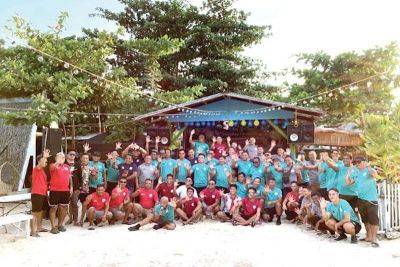Embracing global talent, nurturing domestic growth | The Freeman
Filipinos are ecstatic over the country's first basketball gold at the Asian Games in six decades. We triumphed over formidable Asian teams such as Iran, China, and Jordan. However, barely had the excitement subsided when, expectedly, some critics raised concerns. One of them was Iran's basketball team head coach, Hakan Demir, who pointed out what might be seen as the elephant in the room: The inclusion of naturalized players in the Gilas team.
Likewise, a China-based think-tank, the Somali Institute of Chinese Studies, questioned the success of Gilas, suggesting it's dominated by foreign talent like Justin Brownlee and Angelo Kouame, and others in their roster. Interestingly, China also had a naturalized player, Kyle Anderson, playing as Li Kai Er, in the 2023 FIBA World Cup, according to Fastbreak.com.ph.
For the record, there are only two naturalized players on the Gilas Team at the Asiad: Ange Kouame and Justin Brownlee. Incidentally, both were standouts in the games against China and Jordan. Of course, significant contributions also came from the rest of the team, including June Mar Fajardo.
Whenever I encounter someone who is both a nationalist and a purist, I chuckle. One can indeed be a nationalist without being a purist, and can even maintain a cosmopolitan or global outlook. My mild disdain and amused reaction to a purist outlook stem from the fact that when examining the history of developed countries, one would realize that no nation has ever achieved fully-developed status solely on its own.
History is replete with instances where countries that opened their doors to foreign expertise and concepts experienced rapid growth and transformation. Japan is one of those countries. During the Meiji Restoration, Japan recognized the limitations of depending solely on local expertise. Thus, it sent its scholars and experts overseas to learn from the West. They returned home with the best of foreign technologies, methods, and ideas, which were then adapted and integrated into the local context. This 'learn, adapt, and improve' strategy was a significant factor that propelled Japan to the status of a global industrial powerhouse in a relatively short span of







